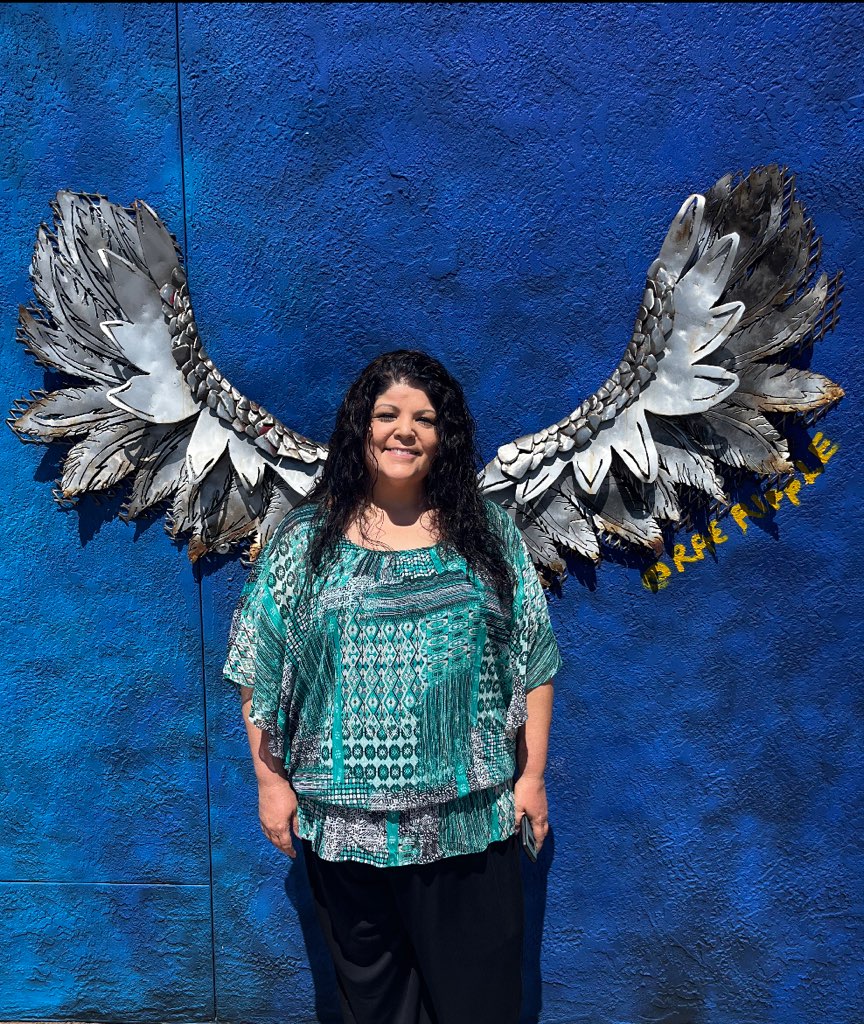“I lost myself in my addiction; Resolana helped me find myself and be a better version of myself.”
Chelsea Collier
Chelsea Collier’s life as an only child started out just fine. She grew up in the Dallas area with two working parents. Her father worked long hours; she was especially close to her mother who spoiled her. But at 14, the first cracks in the foundation appeared when her parents divorced. She and her mother moved to Frisco and Chelsea found herself in the middle of nowhere.
Then she met a family she fell in love with. “They would do anything for each other,” she said. The family ties, however, included smoking marijuana, and soon, Chelsea said, “I couldn’t imagine weed not being a part of my life.”

Chelsea’s first arrest for possession came after she was on her own. She was given probation which she successfully completed. By all accounts, she was handling life fine. Except now, drinking was part of the picture, too. Yet she was functioning. She worked in management at an insurance company, owned her home and car and the bills were paid.
The slow downhill roll began when she changed jobs but was laid off within a month. She tried meth. Once was enough; she was addicted. Her next jobs were measured in days, not years. Worst of all, her ailing father who had moved in with her died suddenly and unexpectedly. It was Chelsea who found him.
By now, Chelsea had done a lot of running away from life, including making the rounds of Oklahoma casinos for a year. She accrued six felony possession charges and the many second chances given to her ran out. Twice she landed in the Dallas County Jail; twice she was accepted into the Resolana trauma and addiction program operated by Volunteers of America Texas. And finally, she began to change, changes that included helping others.
Her first time in Resolana was “super-exciting,” she said. “The guard had us pray the Lord’s Prayer every night; I loved the classes.” Staff, she said, was “so compassionate and understanding.” She began gaining insight, especially from the trauma classes and meditation.
Released after three months, old habits resurfaced. But when she went to jail again, she was ready. “This time I took it seriously,” she said. “I learned as much as I could.” She cited mindfulness classes that taught her how to be present, not overthink, and to deal with triggers.
Her mother stood staunchly by Chelsea and they began helping other inmates with things as simple as printing out a photo or as important as calling a lawyer. Chelsea’s vision for her future began to change as program Director Lesley Mohney put Chelsea’s corporate background and technical skills to work. When a court date came up, Chelsea had people to stand up for her. The judge listened. She gave her a chance.
Today, Chelsea Collier works for Oxford House sober living homes. Plus, she has a part-time job as a Resolana re-entry peer mentor.
Resolana, she says, “is life changing. It truly found the root of why I was the person I was. I lost myself in my addiction; Resolana helped me find myself and be a better version of myself.”
